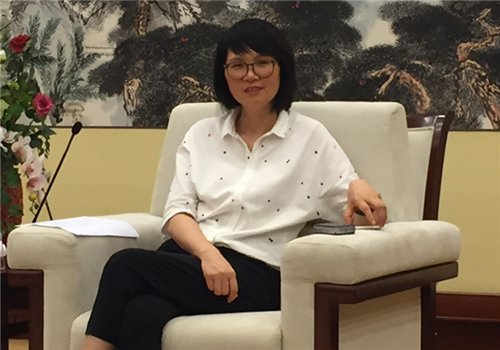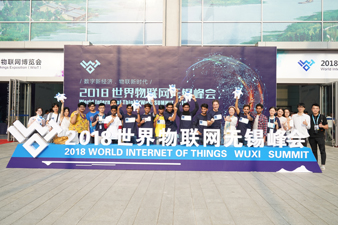Gao Yaguang: Wuxi provides experience for Chinese IoT development

Gao Yaguang, vice-mayor of Wuxi, answers journalists’ questions about Wuxi’s IoT industry in the interview on Aug 10. [Photo/chinadaily.com.cn]
Gao Yaguang, vice-mayor of Wuxi, has said the East Jiangsu city is blazing a trail in internet of things, from which the rest of the country can follow.
The comments were made during a recent interview with national and regional media on Aug 10, in the run up to the 2017 Word Internet of Thing (WIOT) Exhibition, to be held in Wuxi from Sept 10 to 13.
Gao said that as an IoT pioneer in China for the past seven years, Wuxi’s IoT industry has grown to be worth an estimated 210 billion yuan ($31.5 billion), employing some 150,000 people. She said that the IoT industry has been steadily growing at a rate of 30 percent in the city over the past three years, which bodes well for the rest of the country.
“Wuxi has formed a large industrial ecosystem, with an industrial chain covering all aspects of the internet of things, from sensors and networks to processing applications and support services – which is rare in cities all over the world,” Gao said.
Part of Wuxi’s success has come about because of the government-promoted ecosystem between the IoT industry and investment environment. The government has made it easier for financing and investment to get to IoT companies as quickly as possible, especially those small and micro-sized, in order for them to develop and grow.
The government has also encouraged banks to provide loans or lines of credit to creditworthy micro-sized companies, offering another avenue of indirect financing.
In order to make sure there is safety as well as steady investment, the government gives guarantees for small and medium-sized technical companies, as well as credit guarantees for IoT micro-sized companies.
This process involves the initial evaluation of a company’s or entrepreneur’s credit in order to compensate any loses which may occur from negative market swings, bancruptcies or bad loans.
On top of these measures, many public technological platforms have been established to reduce R&D costs, as well as creating a shared environment for communication and information exchange.
Among Wuxi’s 2,000 IoT companies, 24 have been publicly listed on the Main Board and 54 on the National Equities Exchange and Quotation (NEEQ), New Third Board.
Gao said she hoped that Wuxi’s IoT industry could continue to play an important role in the city’s industrial transformation as well as being a benchmark from which other cities could follow in the future.

 Play
Play